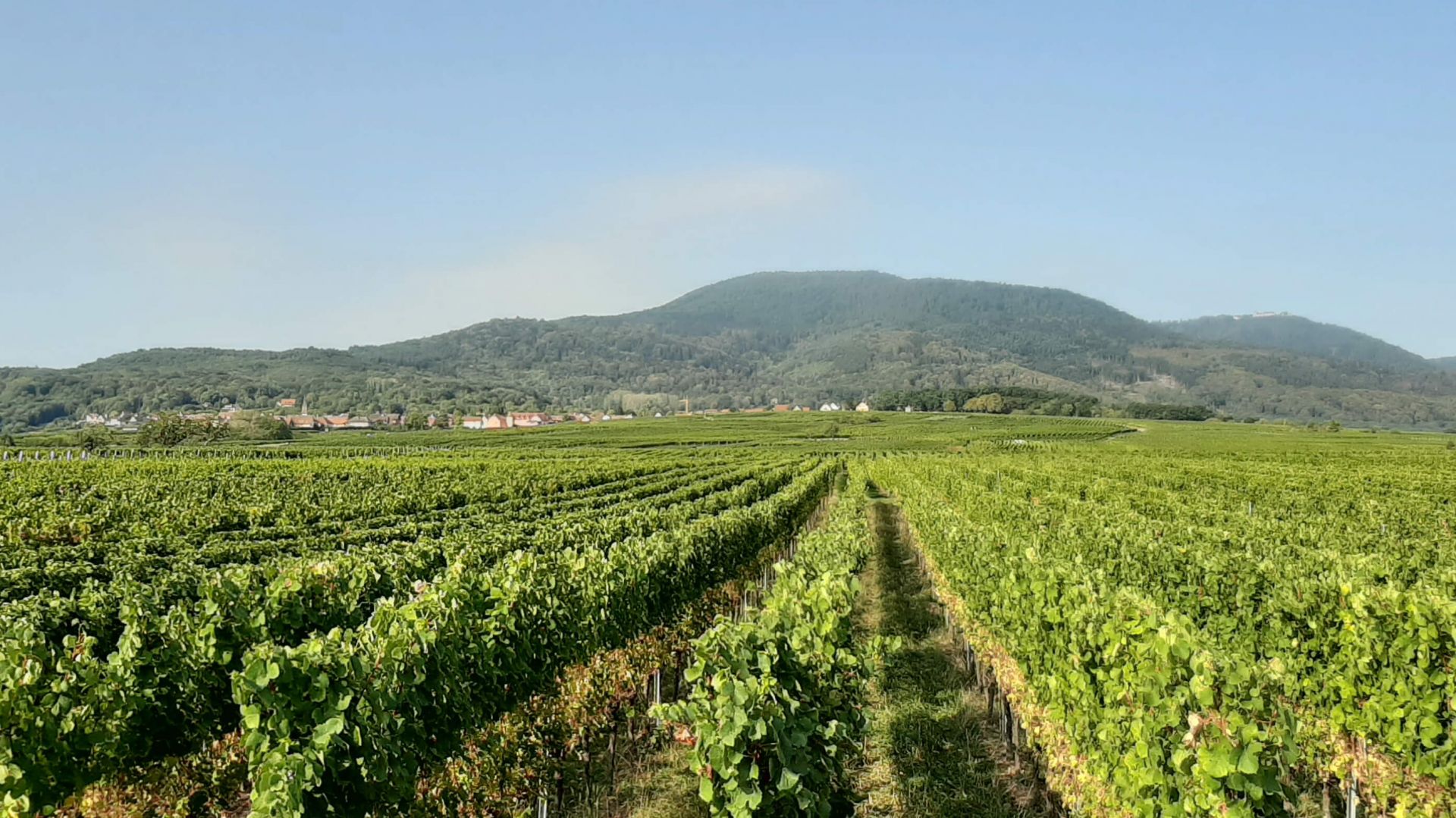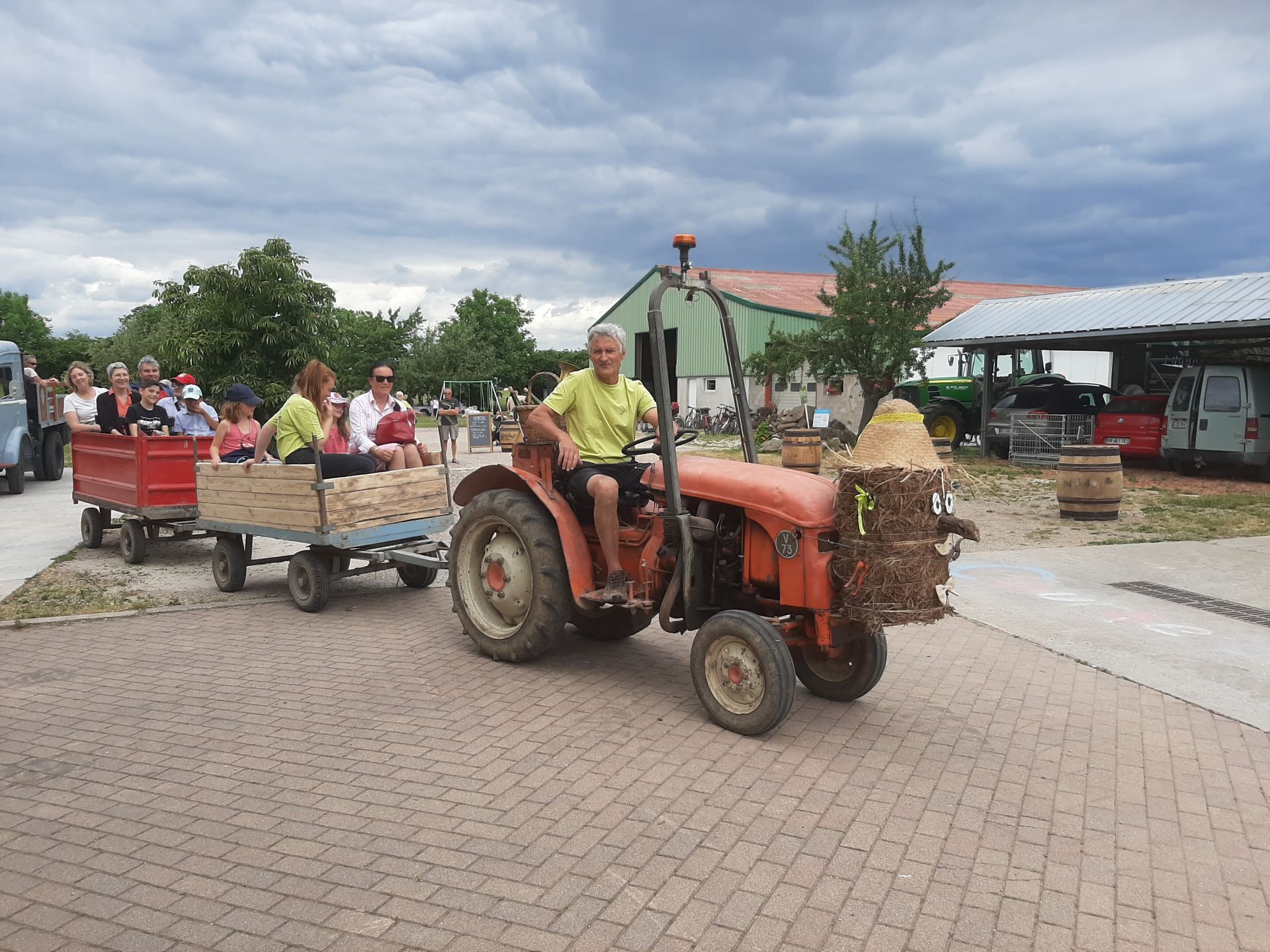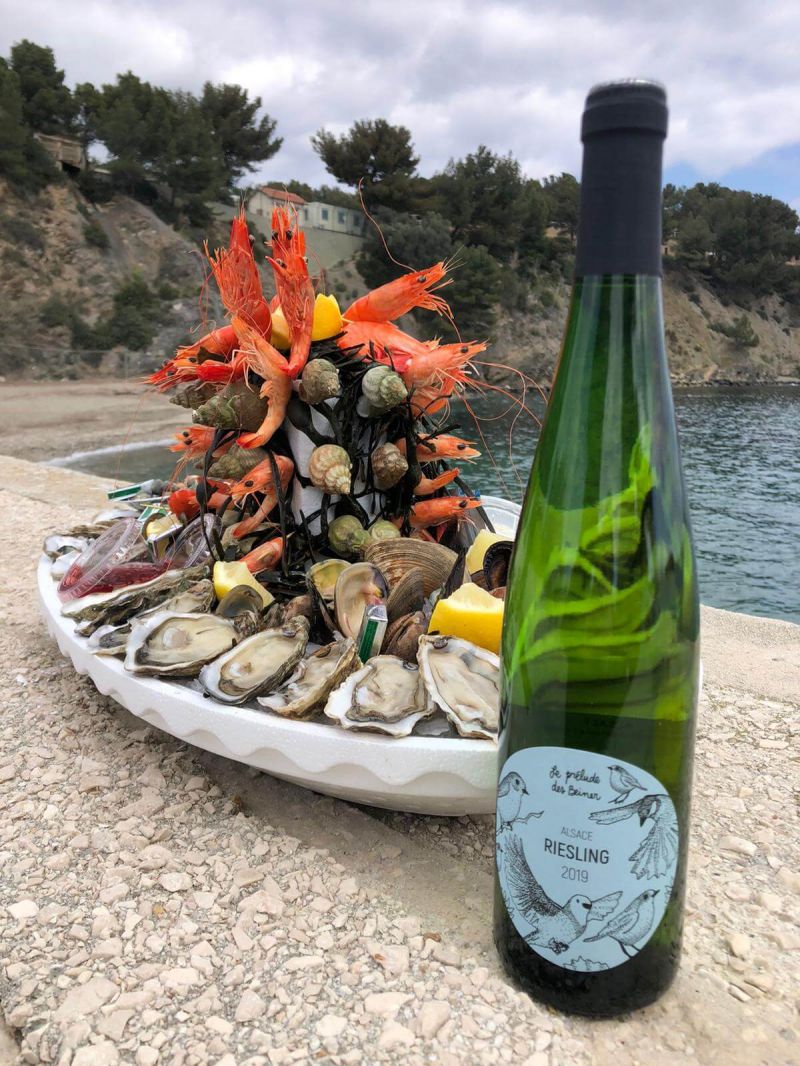
Our approach

Our approach
The vineyard is our garden
Our 13 hectares are spread out between Ottrott and Mittelbergheim, in the piedmont plateau of the Alsatian Vosges. The great geological and pedological variability of our land is an advantage that we highlight through an organic agricultural mode of production.
All of our vines are permanently covered with grass. This covering is managed with the help of ‘rolofacas’ – dented rolls that fold and lay the grass down rather than cutting it. This is a less energy-consuming practice than mowing, which limits the water stress of the vine by creating a natural mulch that limits water loss through evaporation.
Furthermore, sowing beans, mustard or clover between the rows will generate an interesting biodiversity for all the fauna, whilst improving the soil structure. By decomposing, these plants will also feed the vine and fix carbon in the ground. Grass management on the ‘cavaillon’ (small mound that connects the different vine stocks in a row) is done with a range of inter-stock tools, of different ploughs or levelling blades, in order to allow the vine to serenely flourish.
Vine disease management is mainly done with preventative methods such as disbudding and grass management. However, it remains essential to protect the vine from fungal diseases like powdery mildew and mildew – fungi against which we treat our vines with low doses of sulphur and copper.
Moreover, in 2020 we started to plant trees in our vineyards, to provide shelter for the auxiliary fauna, to regulate the temperature and to protect the vines in case of a heat wave.

The vinification, between tradition and modernity
We are convinced that good wines are primarily made in the vineyard. The first step of our wine-making process is without a doubt the most important one – we hand-pick the grapes in small boxes, which allows us to carefully choose the grapes for an optimal quality. The grapes are then placed in our pneumatic wine press, which gently extracts their juice using low pressure. Our thermoregulated vats will then allow us to cool the must (the grape juice) down and thus settle the thick particles without using sulphites.
We also use bio-protection yeasts, which colonise the must in order to protect it from oxidation and non-desired micro-organisms. Some of our cuvées are then treated with sulphite at the end of the alcoholic fermentation, in order to stabilise them and allow them to keep their aromatic finesse by protecting them from oxidation. Our Natural Cuvées are, however, vinified without any input, including sulphites.
Finally, we have a range of wines that are vinified and then aged on the lees in oak casks, which allows us to obtain subtle wines with a fine and elegant woody aroma.